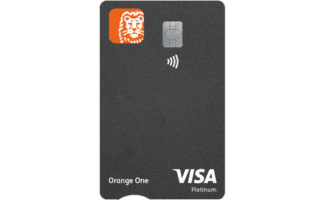How to choose the ideal credit card for your financial needs

The Importance of Selecting the Right Credit Card
Choosing a credit card is a significant financial decision that can influence your overall financial health. With a plethora of options available, it is essential to understand the various features and benefits that different cards offer in order to make a fully informed choice.
Key Factors to Consider
When selecting a credit card, there are several key factors to evaluate:
- Interest Rates: The annual percentage rate (APR) is a critical consideration as it dictates how much interest you will pay on any carried balances. For example, if you are someone who tends to keep a balance on your card month-to-month, a lower APR is advantageous. As of 2023, many credit cards in Australia have APRs ranging from around 13% to 20%, so comparing these rates can yield significant savings over time.
- Fees: It is also important to be aware of various fees associated with credit cards. Look out for annual fees, which can vary widely depending on card benefits, as well as foreign transaction fees if you intend to travel internationally. Additionally, late payment penalties can add substantial costs if you miss a due date, so understanding this aspect is crucial.
- Rewards Programs: Numerous credit cards offer rewards programs that cater to different spending habits. Some may provide cashback incentives, while others might award points redeemable for goods or services. For instance, if you often dine out, a card that offers bonus points for restaurants could be more beneficial compared to a standard cashback card.
- Credit Limit: The credit limit assigned to your card should align with your financial needs. A higher limit provides flexibility but also the temptation to overspend. It is wise to ensure that you have a credit limit that supports your purchasing habits without reaching the risk of maxing out the card, which can impact your credit score.
Understanding Your Spending Habits
Moreover, understanding your own spending habits is critical to selecting the best credit card. For example, if you are an avid traveler, a card with no foreign transaction fees and tailored travel rewards can enhance your travel experiences. Conversely, if your priority lies in everyday purchases such as groceries or fuel, a cashback card may yield better returns and monthly savings.
By thoroughly analyzing these factors and aligning them with your unique financial profile, you can effectively navigate the credit card market. Making an informed choice will not only help you select a credit card that meets your immediate financial needs but also contribute positively to your overall financial wellbeing in Australia.
CHECK OUT: Click here to explore more
Assessing Your Financial Needs
Before diving into the myriad of credit card options available, it is essential to take a step back and assess your financial needs and goals. By doing so, you can narrow down the choices that align best with your lifestyle and spending behaviour.
Identifying Your Financial Goals
The first step in selecting a credit card involves identifying what you want to achieve financially. Consider the following questions when assessing your goals:
- What are your primary uses for the credit card? Are you looking for a card to facilitate daily spending, make larger purchases, or to achieve specific rewards?
- Do you intend to carry a balance? Understanding whether you plan to pay off the entire balance every month or maintain a balance will significantly influence the type of card you should choose.
- What is your credit score? Your credit score will determine the type of credit cards for which you qualify, as well as the associated interest rates and credit limits.
- Are you planning to make any major purchases soon? If you anticipate significant expenditures, look for credit cards that offer promotional financing or lower interest rates for larger purchases.
By gaining clarity on your financial goals, you can select a credit card tailored to your specific needs. For instance, if your focus is on building your credit history, a card with reasonable APRs and no annual fees could be the best choice. On the other hand, if you aim to maximize rewards for travel, a travel rewards card with a competitive points system would be more advantageous.
Your Lifestyle and Spending Patterns
Your spending habits play a crucial role in determining the best credit card choice. Recognising where you spend most of your money can help you find a card that offers suitable rewards or benefits. Some key aspects to consider include:
- Monthly Expenses: Track your monthly expenses to identify the areas where you spend the most. Many individuals expend significantly on groceries, dining, fuel, or entertainment. By pinpointing your high-spending categories, you can seek credit cards that offer higher cashback rates or points in those areas.
- Travel Frequency: If you frequently travel for work or leisure, selecting a credit card that provides travel-related benefits, such as complimentary travel insurance, airport lounge access, or no foreign transaction fees, can enhance your travel experience.
- Credit Card Rewards Preferences: Consider whether you prefer cashback, travel rewards, or retail-related perks. Different cards have distinct reward structures, so aligning your preferences with card offerings will ensure you get the most from your spending.
By taking a comprehensive view of your financial needs and lifestyle, you can effectively sift through the overwhelming credit card options available in Australia. This will set the foundation for selecting a credit card that optimally fits your financial landscape while maximizing benefits and minimizing costs.
SEE ALSO: Click here to read another article
Understanding Credit Card Features and Fees
Once you have identified your financial goals and spending habits, the next step is to delve into the specific features and fees associated with various credit cards. This step is crucial to ensure that the card you select provides value without incurring unnecessary costs.
Annual Fees and Interest Rates
Credit cards often come with annual fees that can range from $0 to several hundred dollars, depending on the benefits offered. It is imperative to assess whether the advantages provided by the card justify the fee. For instance:
- No Annual Fee Cards: These cards can be ideal for those who anticipate limited use or wish to avoid additional costs altogether. Many no-fee options still offer basic rewards and perks.
- Premium Cards: If you are attracted to premium rewards, such as travel insurance, airport lounge access, or exclusive discounts, higher annual fees may be justified. However, ensure that you will utilize these features sufficiently to offset the costs.
In addition to annual fees, understanding the interest rates (APR) is critical. If you plan to carry a balance, choose a card with a competitive interest rate. Conversely, if you intend to pay your balance in full each month, the interest rate may be less impactful, though still worth considering in the event of unexpected large purchases.
Rewards Structures and Bonuses
Credit card rewards can vary significantly. When choosing a card, pay close attention to the structure of its rewards program:
- Flat Percentage Cashback: Some cards offer a fixed percentage back on every purchase, which can be easier to understand and track.
- Tiered Rewards: These cards provide differing percentages of cashback or rewards points based on the spending category. For example, you might earn 3% on groceries, 2% on fuel, and 1% on all other purchases. If these categories align with your spending habits, they can yield greater rewards.
- Sign-up Bonuses: Many credit cards offer enticing bonuses to new cardholders. It is common to find offers that provide substantial points or cashback after meeting a minimum spending requirement within the first few months. Factor in these bonuses when evaluating the overall value of the card.
Additional Benefits and Protection
Aside from rewards, various additional benefits can impact your decision. Look for credit cards that offer:
- Purchase Protection: This feature safeguards you in case of theft or damage to purchased items within a specified period after the purchase.
- Extended Warranty: Some credit cards extend the manufacturer’s warranty on eligible purchases, providing added peace of mind.
- Travel Insurance: If you are a frequent traveler, ensure your card includes insurance for trip cancellations, lost luggage, and medical emergencies abroad.
Moreover, check on the foreign transaction fees for cards intended for international use. Cards with no foreign transaction fees can save you a considerable amount when traveling overseas, as many standard credit cards impose fees ranging from 1% to 3% on foreign purchases.
By thoroughly understanding credit card features and fees, you can select a card that aligns with your financial needs while maximizing the benefits available. This comprehensive evaluation will enable you to make an informed decision tailored to your unique financial landscape.
SEE ALSO: Click here to read another article
Conclusion
Choosing the ideal credit card for your financial needs is a multifaceted process that requires careful consideration of your individual spending habits, financial goals, and lifestyle preferences. By clearly identifying what you seek from a credit card—whether it be low fees, rewarding cashbacks, travel perks, or robust protections—you can streamline your options and focus on cards that truly serve your interests.
As detailed in the article, understanding the annual fees and interest rates associated with potential credit cards is paramount. Opting for a card that aligns with your spending patterns can significantly enhance the rewards you earn while minimizing costs. Whether you choose a card with a low annual fee offering essential benefits or a premium card with extensive perks, assessing the value of these features is crucial.
Moreover, take into account the rewards structures and potential bonuses available to you. Tailoring your card choice to your spending habits—such as grocery shopping or travel—can optimize the benefits you receive. Lastly, ensure you recognize any supplementary benefits and protections, like purchase protection and travel insurance, that may add significant value to your card selection.
By undertaking a detailed analysis of the features, costs, and offerings available, you will be better equipped to select a credit card that not only meets your current financial needs but also contributes to your long-term financial well-being. In the dynamic landscape of credit cards, staying informed and making thoughtful choices is key to financial empowerment.

Beatriz Johnson is a seasoned financial analyst and writer with a passion for simplifying the complexities of economics and finance. With over a decade of experience in the industry, she specializes in topics like personal finance, investment strategies, and global economic trends. Through her work, Beatriz empowers readers to make informed financial decisions and stay ahead in the ever-changing economic landscape.






